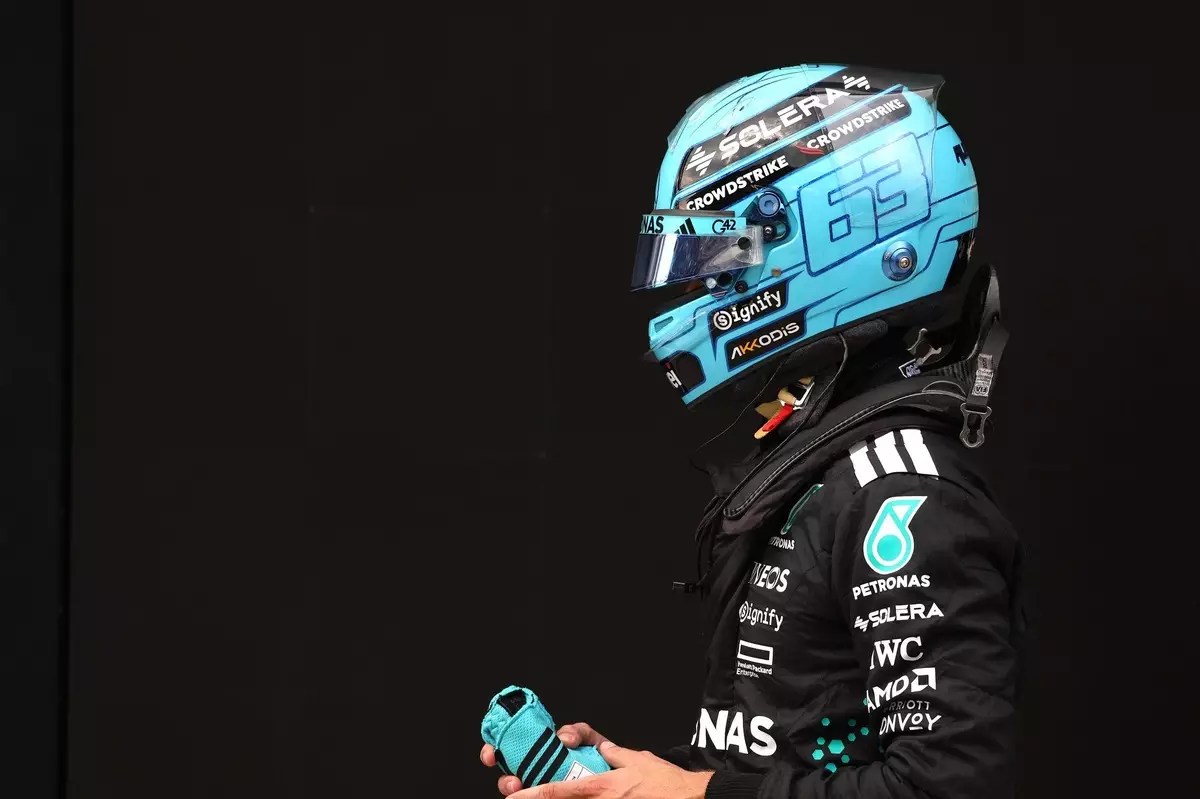In the high-octane world of Formula 1, where contracts can determine a driver’s career trajectory, George Russell’s approach exemplifies a rare blend of patience and strategic clarity. Rather than succumbing to the common pressure to finalize negotiations during the summer break, Russell emphasizes the importance of timing in making such pivotal career decisions. His stance underscores a broader philosophy: that meaningful negotiations require a calm and considered environment, free from the chaos of racing weekends and media speculation.
This stance is particularly noteworthy given F1’s culture of rapid contract signings, often seen as a way for teams and drivers to secure stability amid the sport’s volatile landscape. Russell’s refusal to rush his contract extension reveals confidence, and perhaps a recognition that hasty agreements can lead to unfavorable terms or missed opportunities. His desire to wait until the season’s midway point, after reassessing his performance and relationship with Mercedes, sets a precedent that strategic patience can be a sign of a mature and forward-thinking athlete.
Analyzing Russell’s Long-Term Strategy and Ambitions
At 27, Russell is at a pivotal career juncture. Having demonstrated consistency and consistency as a rising star at Mercedes, he recognizes the importance of aligning his future with a team that has historically dominated the sport. Yet, his emphasis on securing optimal conditions for his next contract reflects an understanding that future success depends as much on contract terms as on driving skill.
What makes Russell’s approach unique is his deliberate focus on building a lasting partnership with Mercedes. His comments reveal a desire for stability, not just for financial or contractual reasons, but to foster a collaborative environment that can sustain his evolution as a driver. With the 2026 regulation changes on the horizon, Russell seems acutely aware that the sport is entering a phase of transition, and he wants to ensure he is positioned advantageously for whatever shifts occur.
Furthermore, his confident assertion that “it’s a when, not if” he signs signals a belief that a suitable agreement is simply a matter of timing. This optimism, paired with his recent performances — including his win in Canada and his current championship position — suggests he is not merely awaiting a contract renewal but positioning himself as a cornerstone for Mercedes’s future ambitions.
Mercedes’ Perspective: Investing in Growth and Talent
From Mercedes’ standpoint, Russell’s contract situation plays into a broader narrative of nurturing homegrown talent and maintaining stability amidst changing regulations. Executive comments, especially from Toto Wolff, highlight that Russell is highly valued within the team, not just for his on-track accomplishments but also for his potential to grow into a team leader capable of challenging the sport’s elite.
Wolff’s remarks reflect genuine confidence in Russell’s ability and his importance to Mercedes’ ongoing success. The team’s willingness to wait for the right contractual agreement underscores a strategic patience that aligns with their long-term vision. The fact that Mercedes has publicly stated their commitment to building a strong relationship indicates a focus on value and trust rather than short-term gains.
What’s particularly compelling is the mutual understanding that the upcoming seasons will be critical. Mercedes appears committed to not rushing the process, recognizing that hasty decisions could undermine their collective goals. Russell’s emphasis on getting the conditions right and his refusal to accept a rushed deal demonstrate a savvy awareness that the best foundation for long-term success is laid through deliberate and thoughtful planning.
Final Reflection: A Paradigm Shift in F1 Contract Culture
Russell’s approach signals a potential shift in how contracts are viewed within the sport. Rather than treating negotiations as mere formalities to be completed quickly, there is an emerging recognition that patience and clear communication can foster better relationships, more favorable terms, and ultimately, greater stability.
His stance challenges the often frantic, deal-then-race mentality that has historically characterized F1. This calm, measured approach may set a precedent for other drivers and teams to prioritize strategic alignment over hurried signatures, emphasizing quality and longevity over speed. For Russell, this approach is not just about his career but about elevating the sport’s culture towards one where patience and integrity are valued as highly as performance on the track.
As F1 continues to evolve under new regulations and shifting competitive landscapes, drivers like Russell exemplify a new breed — one that values precision, long-term vision, and judicious decision-making as core pillars of success. Whether this philosophy will ripple across the sport remains to be seen, but what is clear is that Russell’s patience is a calculated move, rooted in confidence, strategic foresight, and a desire to carve out a future built on the right foundations.

